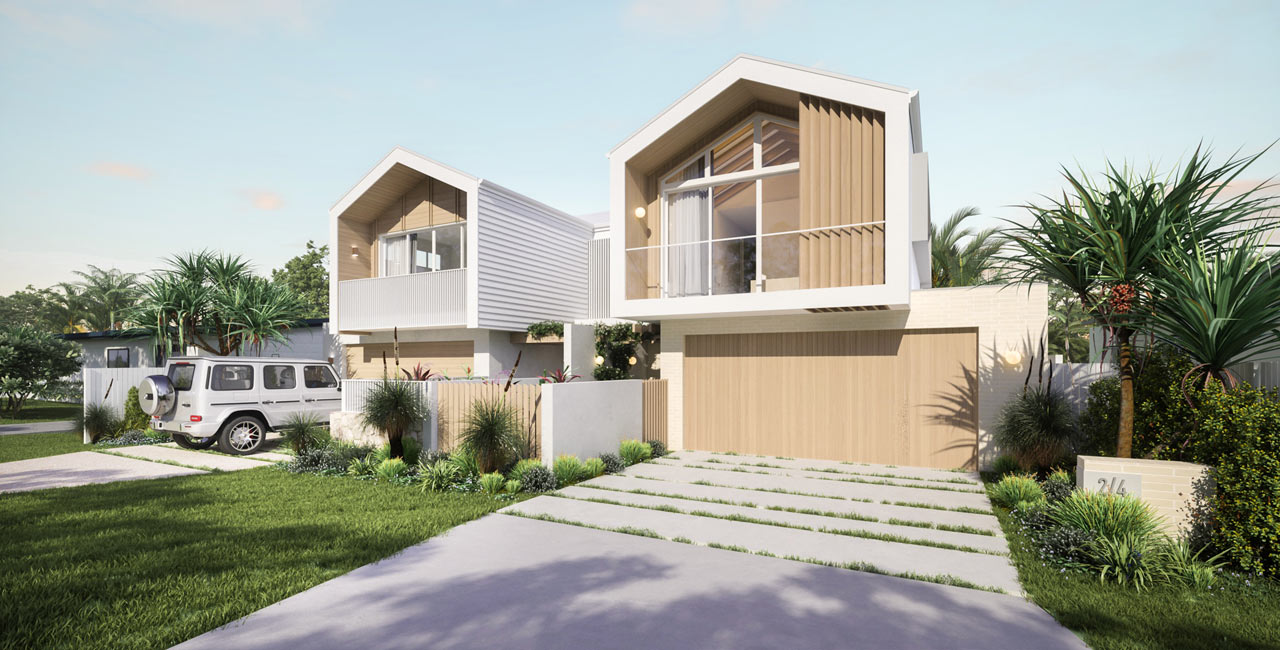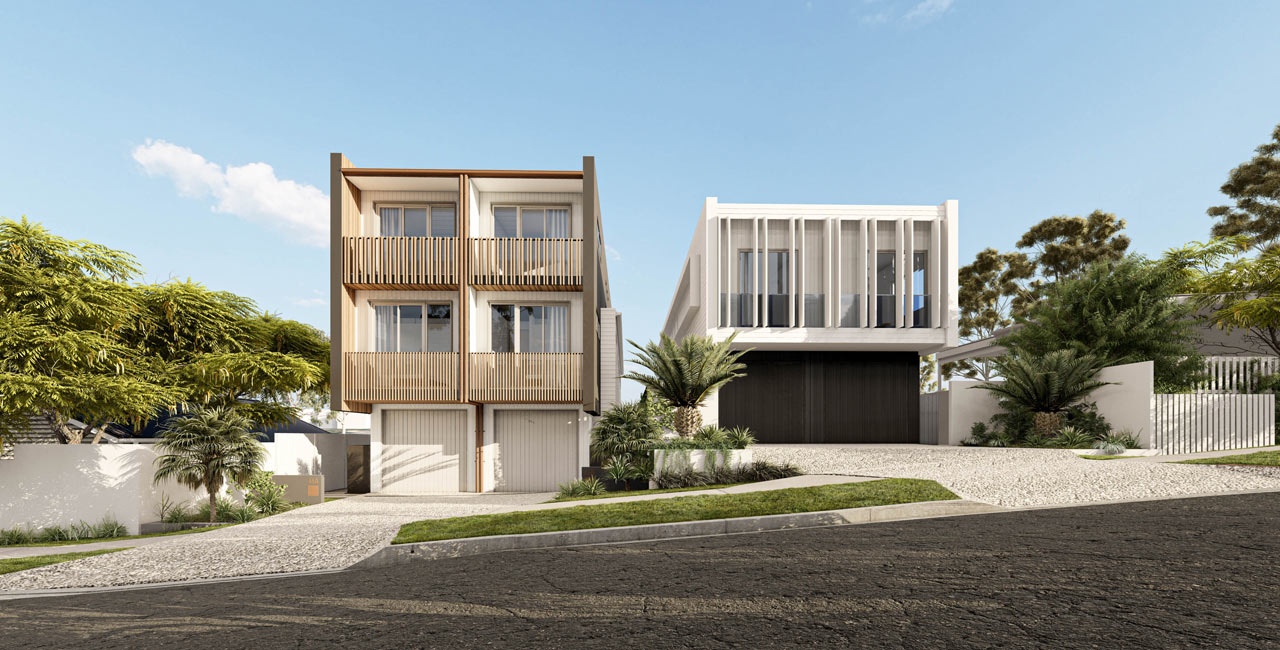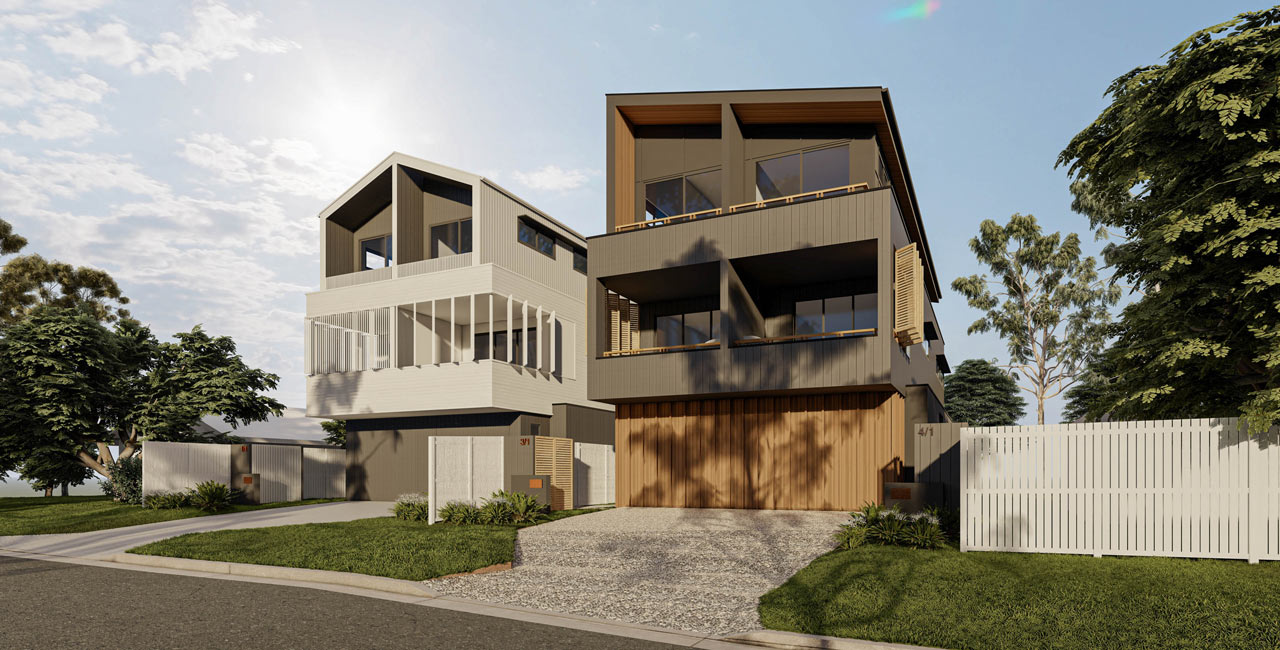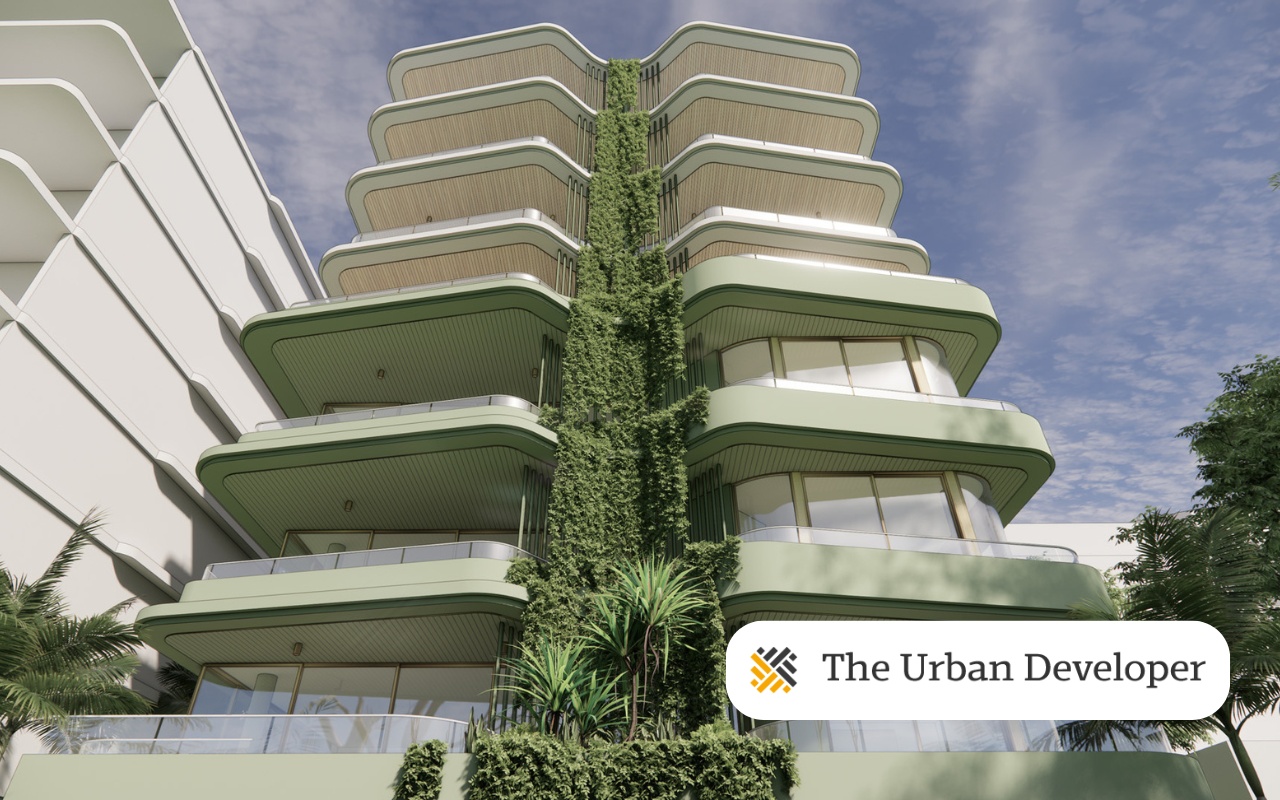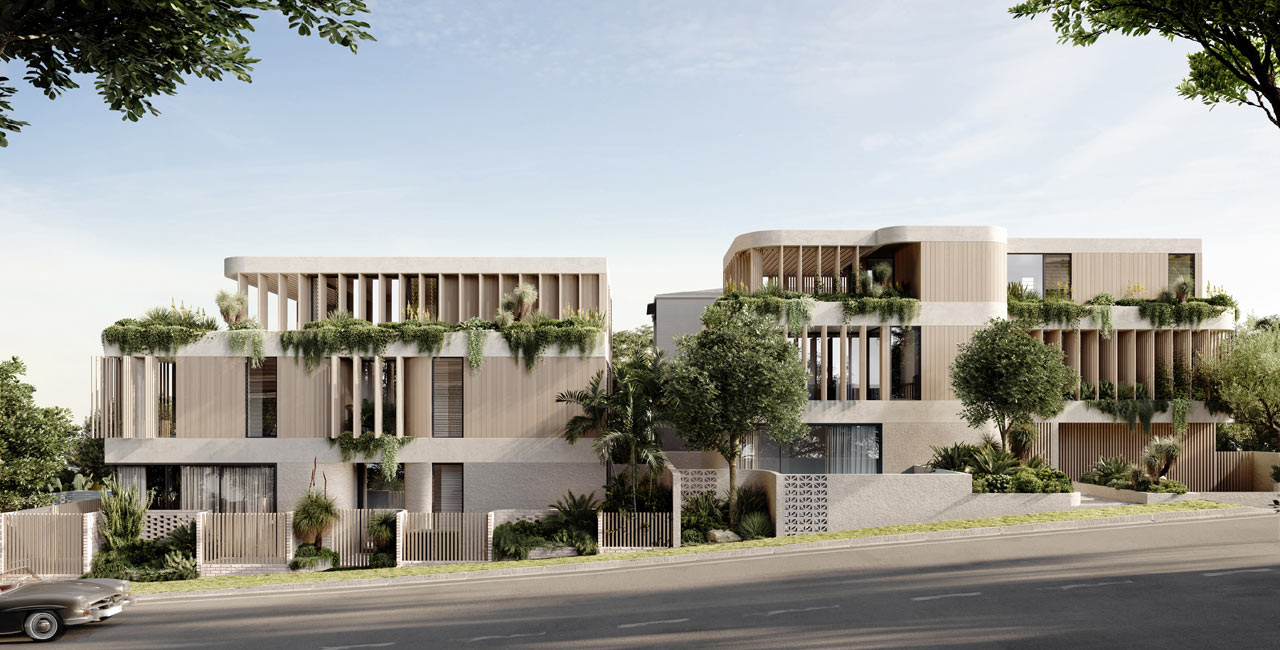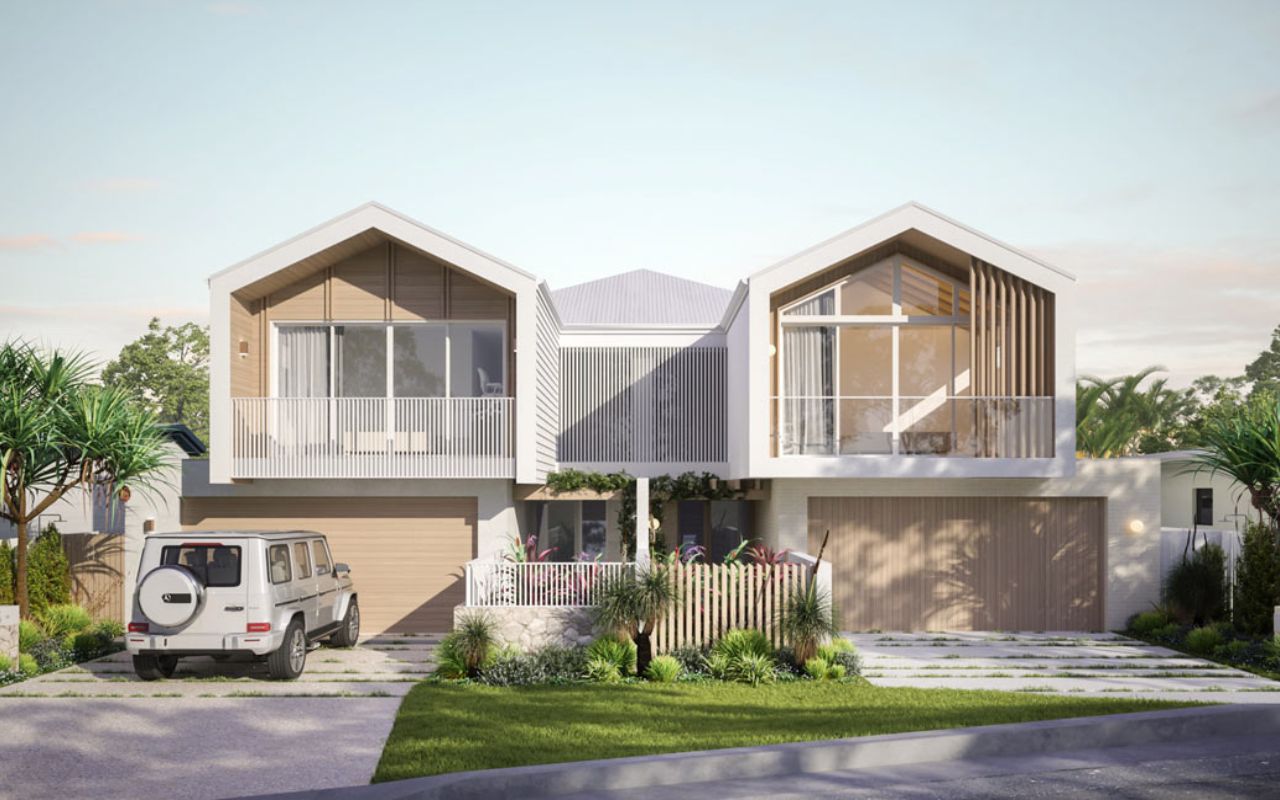Our Gold Coast based team of expert town planners have extensive experience in negotiating and preparing development applications for dual occupancy (or duplexes) on the Gold Coast.
Key Takeaways
What is a Dual Occupancy / Duplex under Gold Coast planning rules?
It refers to two dwellings (either attached or detached) on a single lot. It’s also known as a duplex or terrace housing.
Dual occupancy is distinct from subdivision — subdivision creates separate titles and parcels; dual occupancy keeps both dwellings on the same lot (unless strata or another arrangement applies).
What are the zoning / density rules relevant to dual occupancy on the Gold Coast?
Dual occupancy in low-density zones is acceptable when the lot has dual frontages or if the zone is covered by a residential density overlay map “RD1 or greater” (meaning roughly one dwelling per 400 m²) — though other checks under the Gold Coast City Plan may still apply.
What is the difference between dual occupancy and subdivision?
Dual Occupancy: Two dwellings on one title; separate dwellings but still one lot. Titles usually remain unified (unless strata or separate scheme). Less complex than subdivision in many respects.
Subdivision: The creation of separate parcels and titles. More complex, stricter requirements for lot size, utilities, access etc.
What is an Express Development Application (Express DA), and when does it apply?
An Express DA is a fast-track council approval process for simpler, low-complexity applications. Duplex / Dual Occupancy developments may qualify under certain conditions. Processing time is generally around 10-15 business days, if eligible.
What are key steps / considerations before applying for dual occupancy approval?
Do a preliminary planning assessment to check zoning, overlay maps, lot size, frontage, council requirements, etc.
Engage professionals (town planners, surveyors, architects, engineers) early to manage reports, design, compliance.
Assess whether Express DA is possible, to save time.
What are realistic expectations / benefits from using such a process via a professional firm?
Advantages include:
Higher likelihood of approval (Elevate claims a 100% approval rate for their Gold Coast City Council DAs).
Faster, smoother navigation of regulatory requirements due to experience and local knowledge.
Potential cost and time savings due to avoiding missteps or surprises in compliance.
Table of Contents
What is a Dual Occupancy, also known as a Duplex?
- A dual occupancy is made up of two dwellings (attached or detached) on a single property. It is also referred to as a duplex or terrace housing.
- A dual occupancy in a low-density dwelling zone is acceptable when on dual frontages, or the residential density overlay map is RD1 or greater (1 dwelling per 400 square metres). This will be subject to other City Plan checks that may need a planning professional like Elevate to help with.
- Definition: A residential use of premises for two households involving:
- two dwellings (whether attached or detached) on a single lot or two dwellings (whether attached or detached) on separate lots that share a common property; and
- any domestic outbuilding associated with the dwellings; but
- does not include a residential use of premises that involves a secondary dwelling.
- Land Title: Duplex, two dwellings on a single lot (whether or not attached), two dwellings within one single community title scheme under the Body Corporate and Community Management Act 1997, two dwellings within the one body corporate to which the Building Units and Group Title Act 1980 continues to apply. Both dwellings can be rented or sold separately but are often treated as one property with shared ownership.
- Council Approval: Dual occupancy usually requires development approval from the local council. The approval process can vary depending on the zoning and specific council regulations.
What is the Cost of an Express DA
The cost and process of submitting a duplex application to the Council vary based on the scale and complexity of the development, as well as the specific type of application required. Elevate offers complimentary initial advice and consultations to conduct a preliminary planning assessment.
We will evaluate whether your property is suitable and manage the entire application process on your behalf. While we cannot guarantee a specific approval timeframe, we are committed to delivering results more efficiently than our competitors.
Elevate boasts a robust and established network of government and industry contacts. We coordinate all necessary consultants, including surveyors, architects, engineers, and landscape architects, through our reliable connections from the inception to the completion of your project, ensuring your vision becomes a reality.
Should I Chat With An Elevate Town Planner?
If you are considering developing a property with a duplex project, contact us today. We will swiftly identify and resolve potential issues, providing outcome-based solutions that save you time and money.
What Are Examples of Successful Dual Occupancy Projects?
Elevate has extensive experience on the Gold Coast in preparing and negotiating planning outcomes on behalf of a variety of developer clients. Valuably, we have extensive experience in getting approval for Dual Occupancy or Duplex developments on the Gold Coast. View a sample of our recent Duplex / Dual Occupancy Projects.
How Do I Take The Next Step?

Find out how 8 years experience working within Gold Coast City Council can make a difference to your Dual Occupancy project.
Should you be interested in discussing any of the residential duplex development information provided, please give our Town Planning team a call today.
Alternatively, you can schedule a free Dual Occupancy Consultation or make an enquiry.
